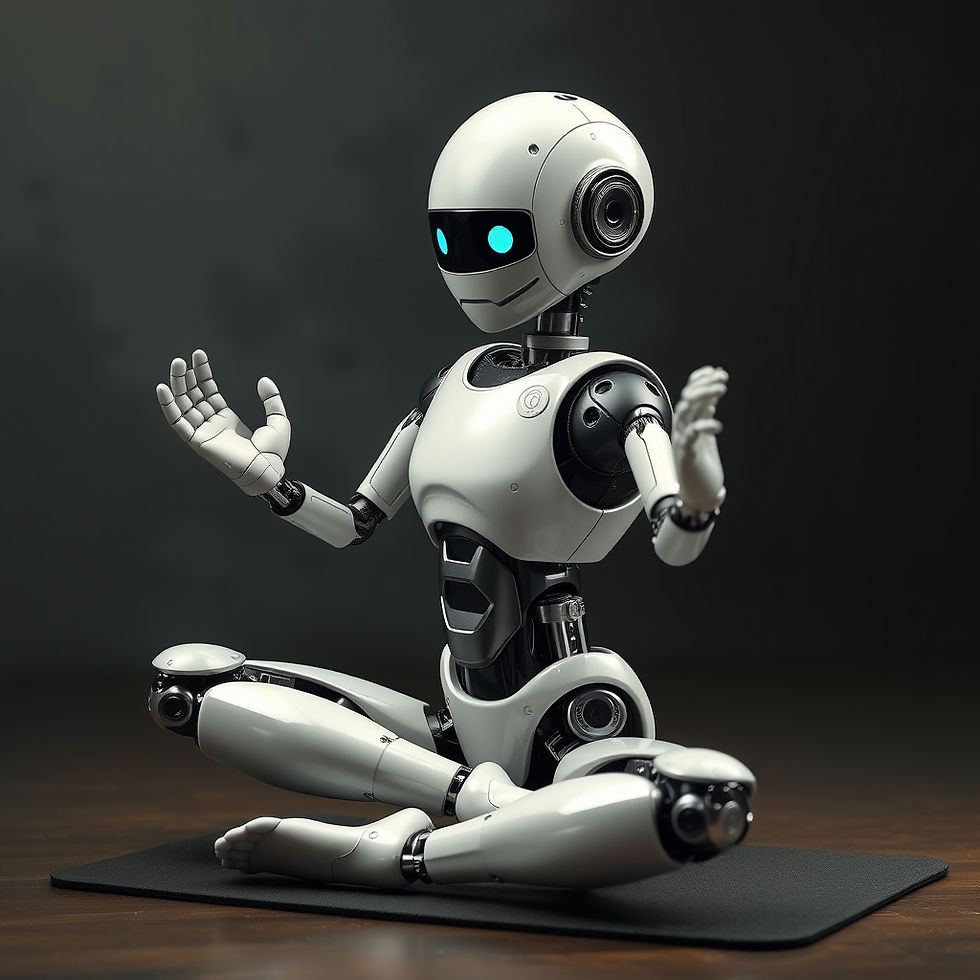The Ethical Side of AI in Wellness: Should We Trust Tech With Our Health?
- Cassandra Simpson

- Sep 3, 2025
- 2 min read

As women, we’re constantly juggling careers, relationships, family, and our own personal growth. Wellness has become not just a luxury but a necessity for survival in a world that doesn’t slow down. Now, with artificial intelligence stepping into the wellness space—guiding meditation, monitoring sleep, recommending diets, and even detecting early signs of depression—the question arises: Can we trust technology with something as intimate and sacred as our health? The promise is alluring, but the ethical side of AI in wellness deserves our full attention.
1. The Seduction of Personalization
AI can create meal plans tailored to your body type, workouts based on your cycle, or meditations that fit your mood. It feels empowering, like having a personal coach 24/7. But we have to ask: is personalization genuine, or are we being guided by algorithms trained to keep us engaged rather than healthy?
2. Who Owns Your Data?
Wellness apps often collect sensitive data—our sleep patterns, menstrual cycles, eating habits, and even mental health journals. As women, this kind of data is deeply personal. Without strong regulations, we risk handing over intimate details of our bodies and minds to corporations who might not always have our best interests at heart.
3. Bias in the Algorithm
If the data feeding AI is built on male-centric studies or ignores diversity, the recommendations might not serve women equally. From fitness plans that don’t account for hormonal changes to mental health tools that overlook cultural nuances, bias in AI could unintentionally harm rather than heal.
4. Replacing Human Intuition
Wellness has always been about connection—listening to our bodies, honoring intuition, and leaning on supportive communities. If we become over-reliant on AI, we risk silencing the inner voice that tells us when to rest, when to seek help, or when something simply doesn’t feel right.
5. The Profit vs. Wellness Dilemma
Behind many wellness apps lies a profit model. The danger? AI could be optimized to keep us “hooked” rather than healed. It’s worth asking whether technology is truly guiding us toward balance—or just nudging us into another form of consumerism.
6. Empowerment Through Awareness
On the bright side, AI can provide insights we might miss on our own. It can track patterns in mood, highlight cycles in energy, and flag warning signs of burnout. Used wisely, AI becomes a tool that empowers women to take control of their wellness journey, not surrender it.
7. Building a Healthy Relationship With AI
The ethical side of AI in wellness isn’t about rejecting technology—it’s about setting boundaries. Just as we choose healthy friendships, we must also choose AI tools that respect our privacy, reflect inclusivity, and enhance rather than replace our intuition.
AI has the power to reshape how women approach wellness, but trust should never come blindly. Our health is too precious to outsource entirely to an algorithm. The key is balance: embracing AI for its benefits while staying rooted in our own wisdom, values, and intuition. After all, the most ethical relationship with technology is one where we remain in charge of our own well-being.
Love Cass xoxo



Comments